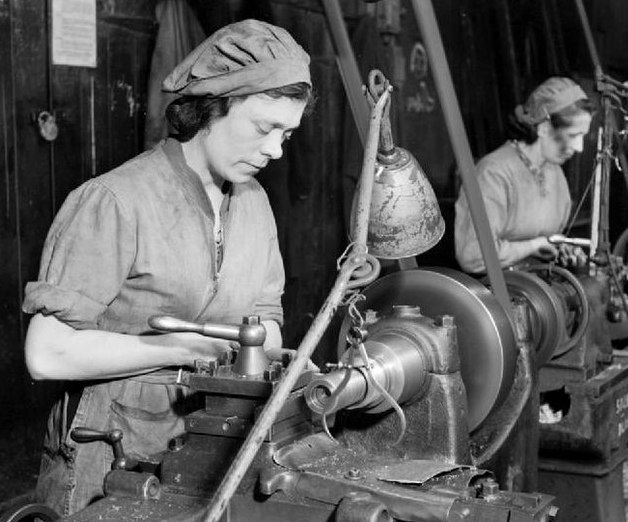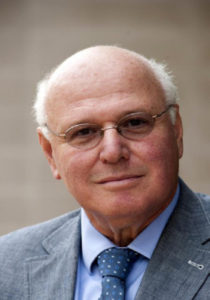17th Biennial Conference of the Australian Society for the Study of Labour History
Call for Papers: The 17th biennial conference of the Australian Society for the Study of Labour History (ASSLH) will be held 5-8 December 2021 in Bendigo, Victoria. Organised with the support of LaTrobe University, the theme of the conference is Fighting For Life: Class, Community and Care in Labour History. Go to our conference webpage for more information.

Statement on the Australian Government’s Higher Education Funding Proposal
The Australian Society for the Study of Labour History joins with other concerned organisations and individuals in condemning the federal government’s university funding proposals. These proposed changes are yet another diminution of government support for higher education that risks eroding its overall quality.
The package also represents a continuing failure to provide adequate support for the university sector at a time when it is under unprecedented pressure due to the COVID-19 pandemic and large numbers of jobs are at risk.
The proposals reduce the total level of public funding per student for teaching while doing nothing to improve or even maintain the quality of higher education. The government has also falsely presented subjects such as history, with its exemplary record of educating students for citizenship and employment, as lacking ‘job-relevance’. And, in an effort to direct students to other fields, the package withdraws almost all government support for most humanities subjects including history, thereby greatly increasing the cost of such courses to students.
The increased costs will potentially discourage students from working-class, First Nations and culturally and linguistically diverse backgrounds from taking up studies that have, historically, been transformative for both the students and the humanities and social sciences disciplines themselves.
The Society demands that the federal government abandon this poorly conceived proposal and calls on other federal parliamentarians to oppose its passage through the parliament. It also invites all organisations in Australia representing history, the humanities and the social sciences to join with the Society in campaigning against this destructive policy.
Remembering John Curtin: commemoration and book launch
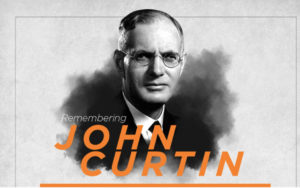 Join ACTU Secretary Sally McManus and ALP President Wayne Swan for this commemoration of John Curtin’s life and legacy as a union activist and wartime prime minister on the 75th anniversary of his death. We will also be launching the new biography of Curtin, Becoming John Curtin and James Scullin (Melbourne University Publishing 2020) by Liam Byrne. 5 July 2020, 6-7pm AEST. You can register for this special online event here: https://actu.zoom.us/webinar/register/WN_mWXQ45a4SeG5LnQCDEpDfw
Join ACTU Secretary Sally McManus and ALP President Wayne Swan for this commemoration of John Curtin’s life and legacy as a union activist and wartime prime minister on the 75th anniversary of his death. We will also be launching the new biography of Curtin, Becoming John Curtin and James Scullin (Melbourne University Publishing 2020) by Liam Byrne. 5 July 2020, 6-7pm AEST. You can register for this special online event here: https://actu.zoom.us/webinar/register/WN_mWXQ45a4SeG5LnQCDEpDfw
PhD Scholarship at La Trobe
Applications are invited for a PhD scholarship in modern Australian labour history to be undertaken under the supervision of Professor Diane Kirkby within the Archaeology and History Program at La Trobe University‘s Melbourne campus. The scholarship is funded by La Trobe at the initial rate of $28,092 p.a. and is offered as part of the Australian Research Council Linkage Project, “The ACTU in the Making of Modern Australia” held by Diane Kirkby and Stuart Macintyre. It is available on any aspect of twentieth-century labour. Proposals are particularly welcomed on topics of women’s or Indigenous labour history, on workplace issues and conflicts, or exploring themes of gender, leadership or activism in organisations or communities. For more information please email diane.kirkby@latrobe.edu.au, or contact the History Program Coordinator Dr. Emma Robertson, on emma.robertson@latrobe.edu.au. Applications close on 30 September 2020.
A Turbulent Decade: Social Protest Movements and the Labour Movement 1965-1975
Sydney Branch ASSLH’s very popular 2005 publication, A Turbulent Decade: Social Protest Movements and the Labour Movement 1965-1975, edited by Beverley Symons and Rowan Cahill, is unfortunately now out of print. However it has been digitised by the University of Wollongong and is available for free download here.
Activism, Struggle and Labour History radio program
Over the summer of 2019/2020 Community Radio 3CR hosted a program entitled Activism, Struggle and Labour History which was made up of a variety of presentations that were given during the 2019 Australian Society for the Study of Labour History conference. The programs are now available online as podcasts, along with other 3CR summer series, at https://www.3cr.org.au/summerspecials2019-2020
Episode 1: Phillip Deery – International Activism & the struggle to save the Rosenbergs; Vashti Fox – Fascism and Anti-Fascism in Melbourne in the 1990s; Verity Burgmann – Trade Unions & the Anti-Corporate Globalisation Movement.
Episode 2: Charlie Fox – Chinese seamen at Fremantle during WWII; Cybele Locke – The Northern Drivers’ Union. An anti-racist organisation in the 1960s.
Episode 3: Nick Everett – The Campaign to defend native rights 1946-49; Rae Frances – Sex Trafficking, Labour Migration and the State.
Episode 4: Iain McIntyre – Squatting’s place in Emergency Housing 1946-48; Phoebe Kelloway – NSW Northern District Coal Lockout 1929-30.
Episode 5: David Faber – Safety First, the 1934 Ingham Weil’s Disease Strike; Michael Pearson – The First Motor Mechanics, 1900-1920.
Call for Papers: AHA ‘Urgent Histories’
The Australian Society for the Study of Labour History invites its members to submit papers for the Australian Historical Association’s 2020 conference, ‘Urgent Histories’. The AHA conference will be held at Deakin University’s Waterfront Campus (Geelong) between 29 June – 3 July 2020. Abstracts are due by 29 February 2020 and should be submitted via https://www.eiseverywhere.com/eSites/aha2020/Homepage
Conference details and abstract submission details are below:
The convenors welcome proposals for papers and panels on any geographical area, time-period, or field of history, especially those relating to the theme of urgent histories.
AHA and affiliated streams include environmental history, labour history, children and youth, religious history, Pacific history.
Abstract submission types
- Individual paper proposals constitute a 20 minute oral presentation with 10 minutes for questions and answers.
- Panel paper proposals are 1.5 hours in length involving three speakers grouped around an overarching theme.
- Round table discussion proposals are 1.5 hours in length, including time for questions. Round tables comprise at least 5 presenters including a chair who each speak for 15 minutes or less. The abstract submission should specify the topic and chair as well as the presenters and their bios. Please contact the conference convenors directly to discuss your round table proposal before submitting.
Abstract submission guidelines
- An abstract must contain sufficient information so that if accepted and printed in the conference program, it will be a complete outline independent of presentation. Abstracts must not exceed a 300-word limit. The word limit relates only to the text of the abstract and does not include title, authors and institutions.
- Speakers must only present one regular individual conference paper across the AHA and affiliate conference streams. Speakers may take part in other sessions in the role of chair, discussant or roundtable panellist.
- Submission acknowledges consent to publication of the abstract in the conference program.
- All submissions must be completed electronically via this online submission facility. If you are unable to submit in this manner, please contact the conference managers at aha2020@events.deakin.edu.au or phone: +61 3 5227 8121 for further information.
For more information go to: https://www.deakin.edu.au/aha2020
PhD Scholarship on Workplace Violence in Convict Australia
PhD scholarship University of Tasmania for thesis on Workplace Violence in Convict Australia as part of the ARC Project, LP180101048 Conviction Politics under the supervision of Professor Hamish Maxwell-Stewart and Professor Michael Quinlan. This project will map the extent of prosecutions for violent conduct in convict Australia. The successful candidate will be expected to supplement a large body of existing digitised records in order to explore variations in the rate for which male and female convicts were prosecuted for acts of violence across time and space. It will use this body of information to identify the victims of convict violence in order to explore the extent to which convicts targeted other convicts, free individuals, livestock and the destruction of property. As well as exploring the extent of sexual violence, a central aim of the project will be to determine the rate at which overseers, constables, masters, mistresses and other line managers were the target of convict attacks. The thesis will seek to determine whether prosecutions for violent acts were likely to follow in the wake of other political actions such as petitioning and gang strikes. The successful applicant will be expected to work as part of a large supportive project team which will include other postgraduate students as well as academics. They will have access to a series of unique resources including comprehensive research databases. Click here for further information or contact Hamish Maxwell-Stewart hamish.maxwellstewart@utas.edu.au
ASSLH Resolution on Journal Rankings
At its last AGM, the Australian Society for Study of Labour History (ASSLH) passed the following resolution:
That the Australian Society for the Study of Labour History condemns the developing practice by Australian universities of issuing lists of approved and/or ranked journals for publication by academic staff members. By imposing a pernicious system of punishments and rewards, such lists undermine academic freedom, imperil the future of many academic journals, and threaten the study of Australian history. The Society urges its academic members to oppose the practice in their own universities and asks the Federal Executive to consider how the ASSLH might cooperate with other organisations to oppose the practice.
Click here for a copy of the letter that Diane Kirkby, Editor of Labour History, sent to the AHA Executive.
2019 Labour History Prizes
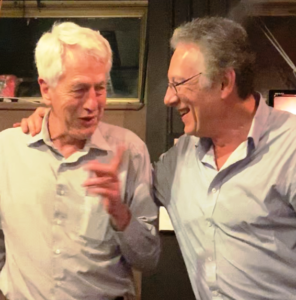
The winners of the 2019 Labour History Prizes were recently announced at ASSLH’s national conference in Perth. The awards were given for the best articles published in Labour History over the previous two years (2017–18).
Our warmest congratulations go to:
Jim McAloon, winner of the Ferguson Prize for the best article on an interwar topic or theme.
Liam Byrne, winner of the Gollan Prize for the best article by a post-graduate student or early career academic.
Geraldine Fela, winner of the GW Ford Award for the article best capturing the experience of workers.
Phillip Deery and Mei-fen Kuo, joint winners of the ASSLH & Unions NSW Prize for the best articles overall.
Click here, for more information about our prizes.
OUT NOW
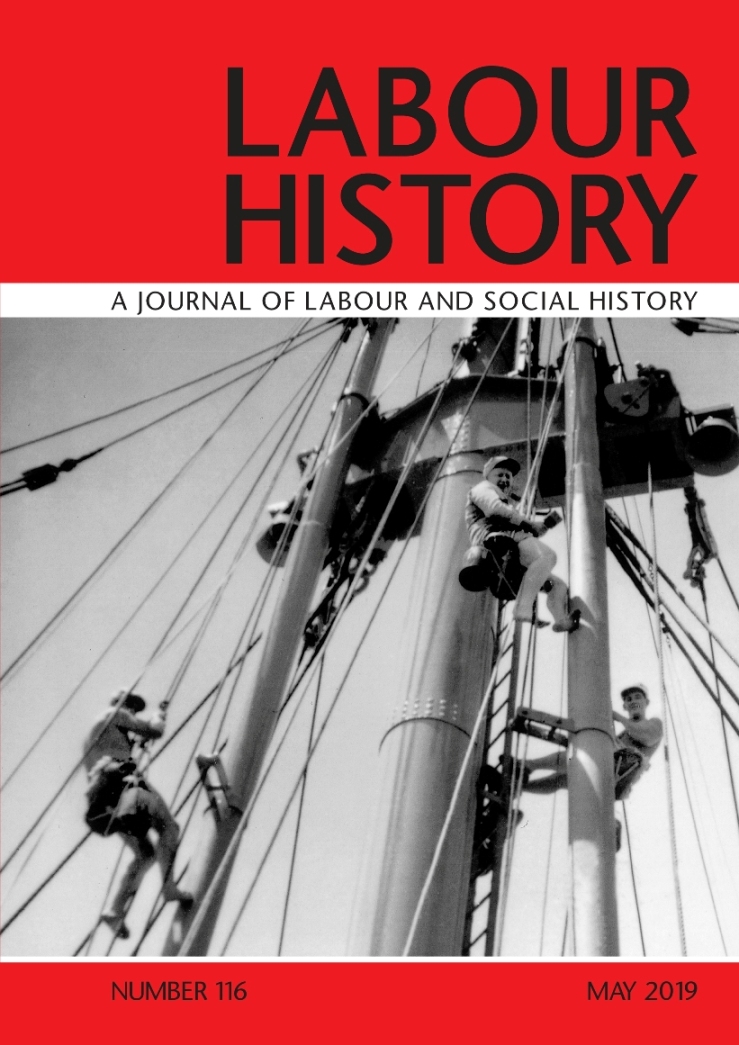 Labour History, no. 116 (May 2019)
Labour History, no. 116 (May 2019)
Maritime labour has a history as old as labour itself and is of continuing significance in the modern world. This issue includes a thematic, edited by Diane Kirkby, which recognises the vitality of maritime labour studies with articles on a range of topics: employment conditions on British steamships, Lascar resistance in the age of sail and steam, the struggles of the Australian Maritime Union, the Queensland wharf labourers’ strike of 1928, maritime unionism in Timor-Leste, and the life of Harry Bridges. In this issue, you’ll also find non-thematic articles exploring new areas of research in Australian labour history. These include the Union of Australian Women’s support for Aboriginal rights, the Whitlam government’s controversial social welfare reforms, and the activity of Melbourne’s fascists and anti-fascists. Taken as a whole, the articles in this issue, even where focused empirically on Australia, enlighten questions of wider relevance and demonstrate a lively research agenda. Click here for more information.
The Toll from Toil Revisited: Historical Lessons in Workplace Health and Safety
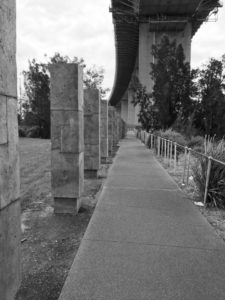
A Call for Papers for a special issue of Labour History (November 2020).
In 1997, Labour History published a special issue of occupational health and safety scholarship, grounded in an ongoing concern that workers, their families, and their communities pay a heavy price for workforce participation – the toll from toil. The aim of the special issue was to demonstrate that labour history scholarship can make a valuable contribution to understanding of occupational health and safety problems in the workplace. Twenty years on, the growth of “new” forms of work organisation prompts a similar urgency to maintain our commitment to critical research that can help to promote safety at work.
Deadline for submission: 1 December 2019.
To submit a paper for consideration and double-blind peer review, please email Carl Power (admin@labourhistory.org.au).
Click here for more information. If you have any questions, please contact the editors, Professor Michael Quinlan (m.quinlan@unsw.edu.au) or Dr Sarah Gregson (s.gregson@unsw.edu.au).
Does Law’s History Matter?
ANZLHS Conference, 11–14 December 2019, Victoria University, Melbourne
 The 38th annual conference of the Australian and New Zealand Law and History Society (ANZLHS) invites those who bring an historical perspective on law to consider together the many ways our work has in the past, and continues in the future, to matter. It’s a theme of particular interest to the field of labour history, and in this the centenary year of the ILO, we are keen to have a good showing of labour historians. The keynote speaker is Martha Jones from Johns Hopkins University, Baltimore.
The 38th annual conference of the Australian and New Zealand Law and History Society (ANZLHS) invites those who bring an historical perspective on law to consider together the many ways our work has in the past, and continues in the future, to matter. It’s a theme of particular interest to the field of labour history, and in this the centenary year of the ILO, we are keen to have a good showing of labour historians. The keynote speaker is Martha Jones from Johns Hopkins University, Baltimore.
Deadline for Abstracts: 21 July 2019. For full details, visit the conference website.
Queen’s Birthday Honours
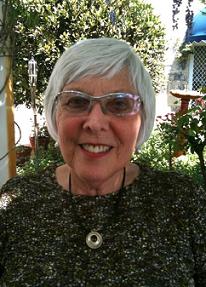 Members of the Society will be delighted with the news that Lenore Layman was named in the recent honours announcement as a Member of the Order of Australia for her services to higher education, Australian and public history.
Members of the Society will be delighted with the news that Lenore Layman was named in the recent honours announcement as a Member of the Order of Australia for her services to higher education, Australian and public history.
This is a fitting acknowledgement of Lenore’s long career at Murdoch, where she flew the flag for Australian history and provided leadership of the NTEU branch. She’s made major contributions to labour history, is active in the WA branch of the Society and serves on a number of other organisations. We congratulate her on this public recognition of her distinguished service.
Stuart Macintyre, President, Australian Society for the Study of Labour History
ASSLH in 2019
As the new year begins, the Australian Society for the Study of Labour History farewells our long-standing President, Nikola Balnave, and Treasurer, Anthony McLaughlin. To Nikki and Anthony we extend our deep appreciation for their work on behalf of the Society. Nikki will continue her involvement with the Society through the Sydney Branch, and the Editorial Board.
We also pay tribute to Andrew Moore, who stepped down from his role on the Editorial Working Party of the journal, Labour History. Andrew has served the journal with distinction for many years and we are grateful that he will continue this involvement with the Editorial Board.
We welcome Stuart Macintyre as our incoming President, and Phillip Deery our incoming Treasurer. Our thanks to all of our friends, subscribers, and members. We wish you all a healthy and happy new year.
We also start the new year with a fundraising campaign. Until the end of January 2019, tax-deductible donations can be made via the Australian Cultural Fund. We are grateful for all donations received, large or small.
https://australianculturalfund.org.au/projects/fundraising-for-labour-history/
All donations over $2 are tax-deductible and you’ll be supporting a Society committed to illuminating and analysing ideas and events that matter.
Activism, Struggle and Labour History
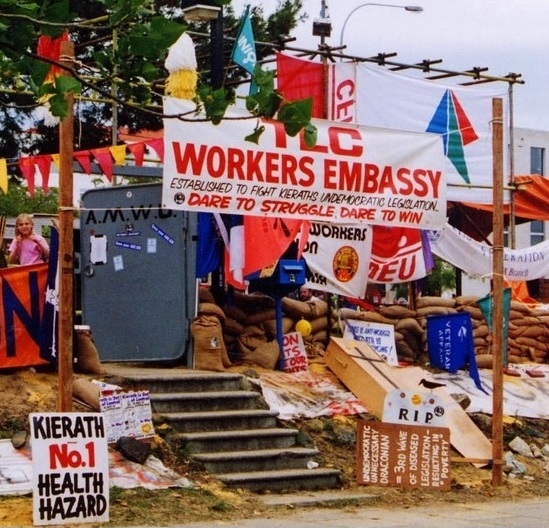
16th Biennial Conference of the Australian Society for the Study of Labour History
3-5 October 2019 Perth Trades Hall Building (now CFMEU Offices)
80 Beaufort Street, Perth, WA.
Click here for more details or contact the conference convener, Associate Professor Bobbie Oliver (bobbie.oliver@uwa.edu.au).
Labour History in Transition
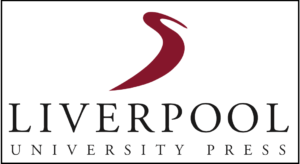 We have just formed a partnership with Liverpool University Press, who will help us to maintain the quality of Labour History and enhance its profile, marketing and audience reach. This will secure the future of the journal for at least the next five years. All editorial arrangements will stay the same, and the cost of individual subscriptions will remain unchanged. For more details, click here.
We have just formed a partnership with Liverpool University Press, who will help us to maintain the quality of Labour History and enhance its profile, marketing and audience reach. This will secure the future of the journal for at least the next five years. All editorial arrangements will stay the same, and the cost of individual subscriptions will remain unchanged. For more details, click here.
The Inaugural Ken Inglis Memorial Lecture
“All the Things We Cannot See: The Dunera Story and the Challenge of Visual History,” a free public lecture by Professor Jay Winter
5.30–7.00pm, Wednesday 12 December 2018,
APCD Lecture Theatre, Hedley Bull Centre, ANU.
Dunera Lives posited that visual material is the archival text out of which the narrative emerges. Following W.G. Sebald’s Austerlitz, this approach to historical writing entails traps as well as opportunities. What is there in the Dunera story that is either left out or expressed in ambiguous ways by adopting a visual approach? This lecture offers a modest assessment of what historians can know and what they cannot know through an exclusively visual approach to narrating the past.
For more information and to book, click here.
Working on the Land: Actors, Societies and Environments
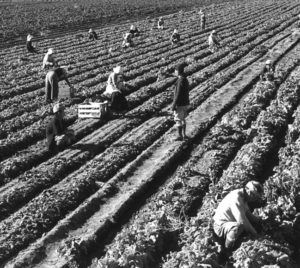 A Call for Papers for the
A Call for Papers for the
55th ITH Conference Linz/Upper Austria, 5–7 September 2019
The ITH Conference 2019 aims at strengthening the links between labour history and rural history. It intends to address the topic “working on the land” from two different angles: firstly, agricultural work as co-production of society and nature and, secondly, rural labour relations as elements of larger political and economic systems. Contributions to this conference will explore how these two perspectives complement each other, identify research desiderata and blind spots in the respective other, creatively develop bridges and contribute to the theoretical, methodological and empirical enrichment of the history of agrarian work and labour.
Proposals due by 6 January 2019. Click here for the full call for papers.
Workers on the Move: Workers’ Movements
LAWCHA Conference, 30 May–1 June 2019, Duke University Durham, NC.
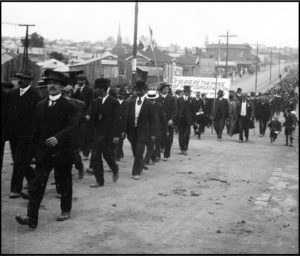 Labor, migration, and organizing have frequently coalesced. LAWCHA seeks presentations that examine how these phenomena have interacted across time and space. The program committee encourages the submission of: transnational and comparative panels; sessions focusing on labor migration and resistance (including but not limited to the era of global trade in enslaved human beings; labor migrations driven by imperialism and colonialism; refugee migrations following wars and other forms of violence, and the labor migrations of the past 40 years sparked by neoliberal foreign investment, debt and loan policies). We encourage presentations examining workers’ movements in the United States, across the Americas and beyond. We also encourage presentations that consider issues in teaching and public history topics. In particular, we seek panels that will focus on the ways race, ethnicity, gender, citizenship status, and sexuality shaped mobility and how workers built class-based communities and social movements in diverse geographical spaces, both historically and in the present.
Labor, migration, and organizing have frequently coalesced. LAWCHA seeks presentations that examine how these phenomena have interacted across time and space. The program committee encourages the submission of: transnational and comparative panels; sessions focusing on labor migration and resistance (including but not limited to the era of global trade in enslaved human beings; labor migrations driven by imperialism and colonialism; refugee migrations following wars and other forms of violence, and the labor migrations of the past 40 years sparked by neoliberal foreign investment, debt and loan policies). We encourage presentations examining workers’ movements in the United States, across the Americas and beyond. We also encourage presentations that consider issues in teaching and public history topics. In particular, we seek panels that will focus on the ways race, ethnicity, gender, citizenship status, and sexuality shaped mobility and how workers built class-based communities and social movements in diverse geographical spaces, both historically and in the present.
The deadline for submissions: 1 October 2018. Click here for further information or contact lawcha2019@gmail.com.
Working Women and Gendered Labour
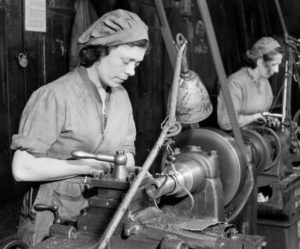 A Call for Papers for a special issue of Labour History.
A Call for Papers for a special issue of Labour History.
We invite contributions on all aspects of women’s work, waged and unwaged, in the formal or informal economies, in “traditional” or “non-traditional” occupations. We also welcome gender history perspectives examining the historical constructions of masculinities and/or femininities in the workplace.
To submit a paper for consideration and double-blind peer review, please email Carl Power (admin@labourhistory.org.au). New Deadline: 29 October 2018.
Click here for more information. For any questions related to the Special Issue, please contact the editors, Professor Glenda Strachan (g.strachan@griffith.edu.au) or Dr Emma Robertson (emma.robertson@latrobe.edu.au).
An Appeal for Memories of Growing up in Australia, 1901–39
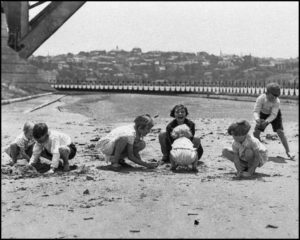 Very little has been written about the history of children’s play in Australia pre-1950. Emily Gallagher, a PhD student at the Australian National University, is researching the lives and experiences of Australian children in this period. She is especially interested in billy-cart and bicycle play, doll play, war play (particularly the re-enactment of colonial and frontier violence), fairy and monster folklore (eg giants, ghosts, wild animals and evil fairies), collecting cultures (including the collecting of bird eggs, postcards, marbles and cigarette cards) and the building of cubby houses or any play with fire or water. She also has a strong interest in juvenile writing clubs, school magazines and children’s nature writings. Click here for more information about this project. If you are able to assist Emily Gallagher, please email her (emily.gallagher@anu.edu.au).
Very little has been written about the history of children’s play in Australia pre-1950. Emily Gallagher, a PhD student at the Australian National University, is researching the lives and experiences of Australian children in this period. She is especially interested in billy-cart and bicycle play, doll play, war play (particularly the re-enactment of colonial and frontier violence), fairy and monster folklore (eg giants, ghosts, wild animals and evil fairies), collecting cultures (including the collecting of bird eggs, postcards, marbles and cigarette cards) and the building of cubby houses or any play with fire or water. She also has a strong interest in juvenile writing clubs, school magazines and children’s nature writings. Click here for more information about this project. If you are able to assist Emily Gallagher, please email her (emily.gallagher@anu.edu.au).
Merv Flanagan Appeal

The Unions NSW 1917 Strike Committee has launched an online appeal for funds to restore the Rookwood Cemetery headstone of Merv Flanagan, the striking carter who was murdered by an armed strike-breaker during the Great Strike. Funds raised will be used to honour Merv’s legacy and that of all those who participated in the Great Strike. Click here for more information.
The 1917 Strike Show!
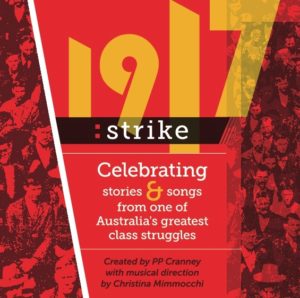 The 1917 Strike show was put together by P. P. Cranney and Christina Mimmocchi and tells the story of the Great Strike in words and song.
The 1917 Strike show was put together by P. P. Cranney and Christina Mimmocchi and tells the story of the Great Strike in words and song.
Performed throughout 2017, a recording is now available on CD by contacting Christina Mimmocchi (christinapossum@bigpond.com).
Click here to see a clip of a song from the show.
Humphrey McQueen, “Dr Marx, Professor Childe and Manure: Some Rather Crude Materialism”
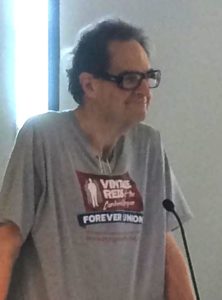 The 2017 V. Gordon Childe Memorial Lecture
The 2017 V. Gordon Childe Memorial Lecture
“Childe … made a reputation digging through the ‘revolting quantity of refuse’ from past civilisations. To illustrate that we acquire our human nature through social evolution, he offers this instance of historical materialism: ‘The human infant has to learn from parents and seniors how to talk, how to dispose of his excrement, what to eat and how to prepare it, and so on.’ These rude facts serve as a lead into … Childe the man, his career and the manner of death.”
Click here for a transcript of the lecture.
The History of the Australian Minimum Wage
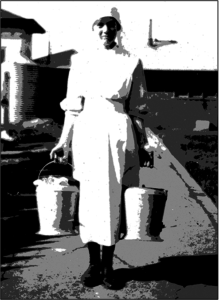 Written by Reg Hamilton, this work brings together, probably for the first time, the Australian Basic Wage, National Wage and Safety Net decisions of the last 100 years, together with each of the movements in the Australian minimum wage. Click here to download the paper.
Written by Reg Hamilton, this work brings together, probably for the first time, the Australian Basic Wage, National Wage and Safety Net decisions of the last 100 years, together with each of the movements in the Australian minimum wage. Click here to download the paper.
The decisions and orders that established and varied the Australian minimum wage are now available online and can be accessed here from the Fair Work Commission website.
Greg Patmore, Worker Voice: Employee Representation in the Workplace in Australia, Canada, Germany, the UK and the US 1914–1939
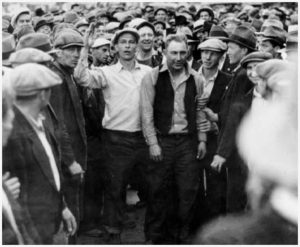
This book informs debates about worker participation in the workplace by analysing comparative historical data relating to these ideas during the inter-war period in Australia, Canada, Germany, the UK and the US. The issue is topical because of the contemporary shift to a workplace focus in many countries without a corresponding development of infrastructure at the workplace level, and because of the growing “representation gap” as union membership declines. Click here for more information.
